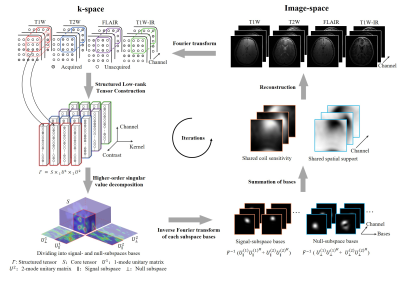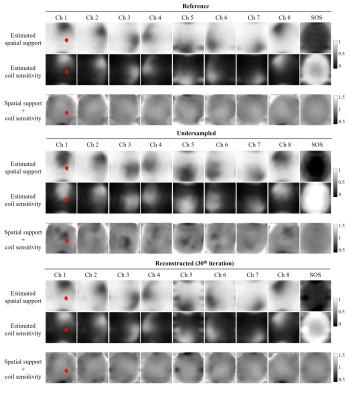Zheyuan Yi1,2,3, Yujiao Zhao1,2, Yilong Liu1,2, Yang Gao1,2, Mengye Lyu4, Fei Chen3, and Ed X Wu1,2
1Laboratory of Biomedical Imaging and Signal Processing, The University of Hong Kong, Hong Kong SAR, China, 2Department of Electrical and Electronic Engineering, The University of Hong Kong, Hong Kong SAR, China, 3Department of Electrical and Electronic Engineering, Southern University of Science and Technology, Shenzhen, China, 4College of Health Science and Environmental Engineering, Shenzhen Technology University, Shenzhen, China
1Laboratory of Biomedical Imaging and Signal Processing, The University of Hong Kong, Hong Kong SAR, China, 2Department of Electrical and Electronic Engineering, The University of Hong Kong, Hong Kong SAR, China, 3Department of Electrical and Electronic Engineering, Southern University of Science and Technology, Shenzhen, China, 4College of Health Science and Environmental Engineering, Shenzhen Technology University, Shenzhen, China
This
study presents a fast and calibrationless reconstruction approach that derives
high-quality coil sensitivity and spatial support maps by structured low-rank
tensor estimation, resulting in efficient and robust image-space
reconstruction.

Figure
1. The workflow of proposed method. 8-channel
4-contrast k-space data has been structured into a low-rank tensor. Subsequent
higher-order singular value decomposition identifies both signal- and
null-subspace bases. Different from low-rank reconstruction, all bases have
been transformed to image space to estimate coil sensitivity and spatial
support maps shared among contrasts by summation. The efficient image-space
reconstruction was performed iteratively with the aforementioned procedures until
convergence.

Figure
2. Estimated coil sensitivity and spatial support maps
from fully sampled reference, uniformly undersampled, and reconstructed data
(30th iteration) using the proposed method. Coil sensitivity and
spatial support maps estimated from fully sampled reference data are nearly
orthogonal complements within the brain region. The proposed iterative
reconstruction can effectively and efficiently correct the estimation errors
(locations indicated by red arrows) of each channel due to uniform
undersampling (R = 4).